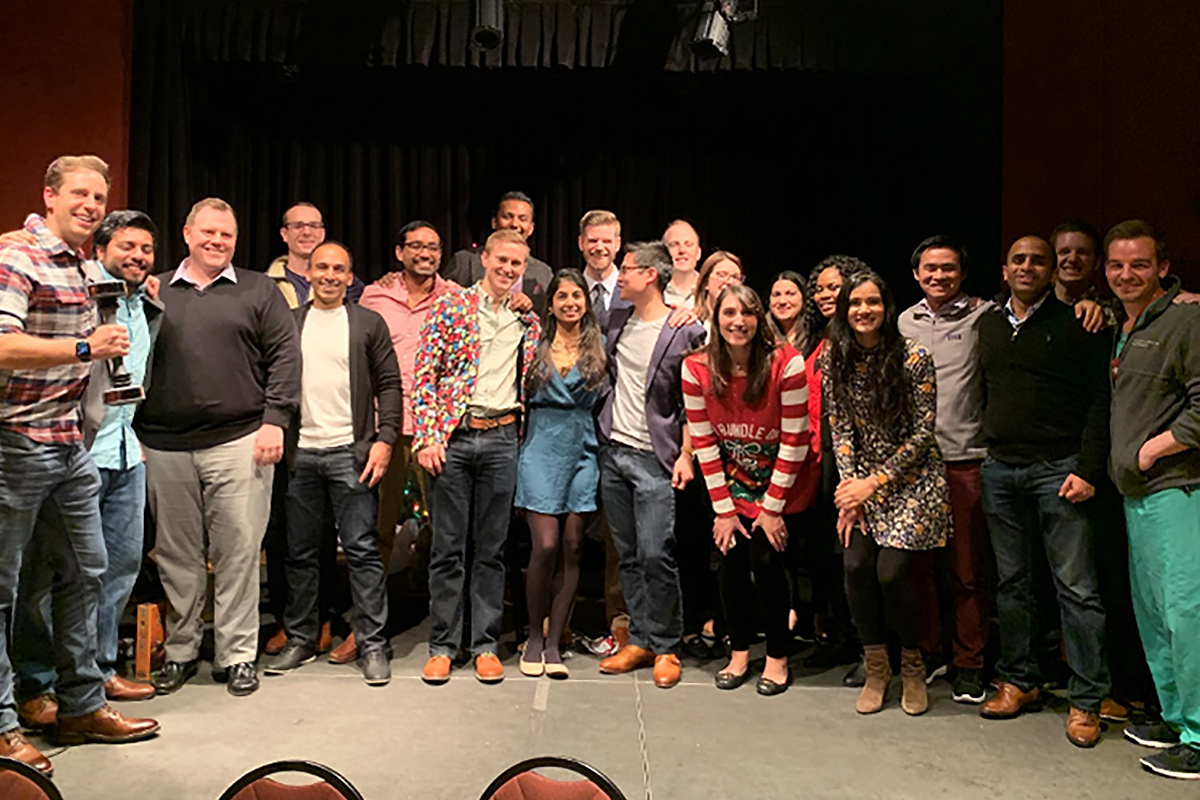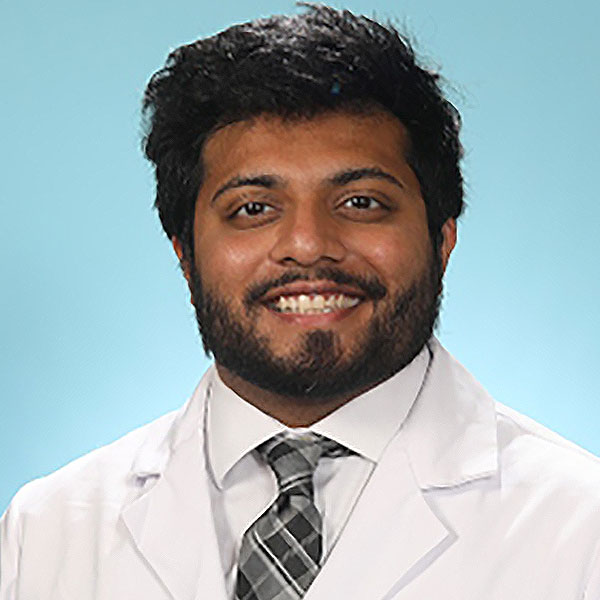Program Spotlight: Washington University in St. Louis
 Fellows Holiday Party organized by the Fellowship Wellness Committee and attended by general and advanced cardiology fellows.
Fellows Holiday Party organized by the Fellowship Wellness Committee and attended by general and advanced cardiology fellows.
In the first installment of the "Program Spotlight" series, which we highlight programs that have undertaken innovative initiatives in fellow education and training, Prashanth Thakker, MD (Twitter: @prathakker), chief Fellow in Training (FIT) at Washington University in St. Louis shares the multifaceted approach that the Washington University cardiology FITs have taken to improve fellow wellness.
What has your program done to promote fellow wellness this academic year?
This year, we have implemented a few aspects within our program to improve wellness.
The Protected Holiday – We thought it was important that our fellows had a protected holiday to celebrate with their families. We offer either Thanksgiving, Christmas or New Year's (based on fellow preference) as a protected holiday allowing them to travel to visit family or just take some time off to recharge.
The Fellow Newsletter – We introduced a weekly newsletter that includes activities around town, highlights fellows' accomplishments, reminds them of upcoming conferences and highlights the personal life of a selected fellow.
The Fellowship Wellness Committee – Finally, we were able to put together a fellowship wellness committee with funding appropriated for wellness events. The committee has put together some great events already, such as a fall picnic, post ITE pancake breakfast, a holiday party, and "Funuary events" in February, including an ice cream social, pancake breakfast, and beer and pizza.
There are more events to come!
Why did your program implement these changes?
We have an excellent program that prides itself for a balanced clinical and scholarly environment. Even though we feel this to be true, we are always looking for ways to improve the experience for our fellows.
It is important to look at ways to improve fellow wellness and reduce burnout. Studies have identified some modifiable barriers to fellow wellness such as unfriendly or unhealthy work environments, lack of wellness initiatives, or lack of space to recharge or reflect.
We are using the protected holidays to allow for more time off for our fellows, the newsletter to increase connectedness and belonging, and a fellowship wellness committee to ensure that wellness initiatives are seen through and allow for us to create a friendly and healthy work environment.
What challenges did you encounter setting it up? How did you overcome these challenges?
Most challenges are surmountable, but one must find creative ways to navigate these challenges. The protected holiday was simple – it was a coordinated effort to ensure that fellows on lighter rotations received additional days off while ensuring that clinical rotations were not interrupted.
We were able to accomplish this by distributing the holidays evenly amongst the classes.
We also had excellent input and support from Andy M. Kates, MD, FACC, program director, and Phil M. Barger, MD, associate program director. Sam Lindner, MD, chief fellow, did a phenomenal job in ensuring that the holiday coverage was seamless.
The Fellows Newsletter has been a collective effort of Thakkerc, chief fellow and Laura King, program coordinator. We have had plenty of input from our fellows, which makes the newsletter a fun and collaborative document.
Finally, we had to ensure that we could adequately fund the wellness committee and ensure that activities were appropriately organized. The Fellowship Wellness Committee was funded by a generous donation by a patient.
We have Majesh Makan, MD, FACC, as a faculty mentor while the fellows in our committee, Natasha K. Wolfe, MD; Nathan Lewis Frogge, MD; Mustafa Husaini, MD; Bin Yang, MD; and Rahul Chhana, MD, ensure that events are well organized and attended!
What advice do you have for fellowship programs looking to start their own wellness initiative?
Prior to starting a wellness initiative, it is important to do a needs assessment. You must be insightful regarding your program's needs and ensure that your initiative will fill a necessary void!
Second, ensure that the leadership and stakeholders are on board. It is important to talk to your fellows to see if a certain intervention is something that they would utilize or benefit from. You need backing from program leadership to execute any initiative. Next, it is important to ensure that your initiative is feasible and cost-effective.
You will have limited resources and will need to make sure that any initiative that you propose can be appropriately funded or executed with the resources available to you. Finally, sustainability is just as important! The initiative should be structured so it can be carried on even after you have graduated from your training program.


